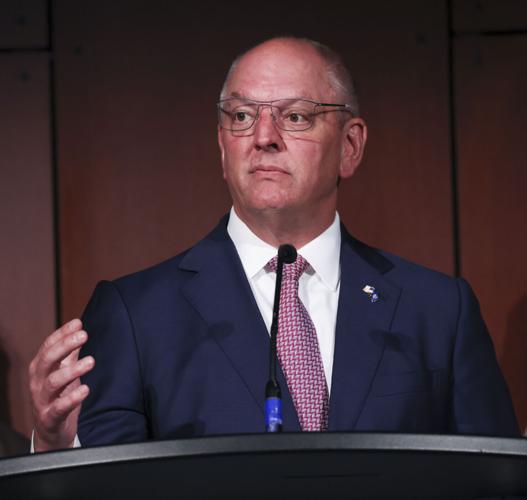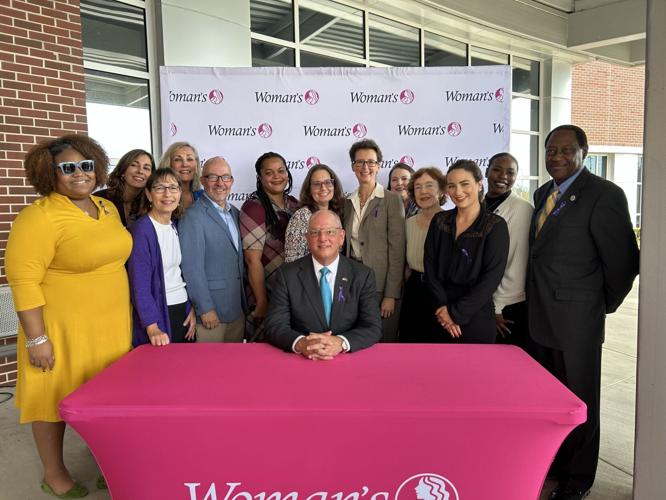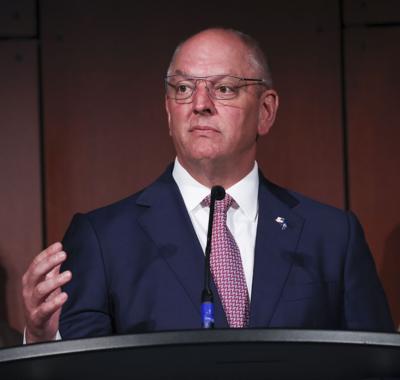Adopting a child, having natural childbirth or fostering a child should be a joyful experience. That may not happen when you don't have a job when you add another mouth to feed. Or when you have a job that requires you to be at work no matter what.
As much as we're taught to believe that a mother's instinct is natural, research shows that nearly all new moms need to learn how to be a mother. We definitely don't hear that fathers have a natural instinct with children, so imagine how much a new father can learn if given the opportunity.
For new parents, getting to spend more time with a child pays dividends in many ways.
That's what's so encouraging about Louisiana's new paid parental leave policy. The Civil Service Commission approved a 100% paid six-week parental leave policy for classified employees at its September meeting.
It wasn't easy. It took a lot of research, comparing other states' parental leave policies, crunching numbers and seeing whether — and how — an enhanced policy might work in Louisiana.
The commission unanimously approved the policy at its Sept. 6 meeting, effective Jan. 1 — once Gov. John Bel Edwards signed it. That happened earlier this month.
Then the governor took it a step further. He issued an executive order giving unclassified and appointed employees the same benefit.

Gov. John Bel Edwards sits as paid parental leave advocates pose for a photograph. Stacey Roussel, deputy executive director at Louisiana Budget Project, stands behind the governor, sixth from the right.
Now about 70,000 state employees will be eligible for six weeks of paid parental leave, with guidelines.
"Paid parental leave has been linked to improved physical health, mental health and the stability of the family unit," said Byron P. Decoteau Jr., director of the Louisiana State Civil Service. "Such leave can reduce the financial stress from parents so they are able to focus on bonding with their child."
He added, "The State of Louisiana is in competition for talent, often competing with private industries that offer an array of flexible employee benefits. It is our hope that the implementation of this rule not only improves health outcomes for children and families but also aids in the attraction and retention of classified state employees."
Far too often, many state government jobs go unfilled. A good parental leave policy just might convince a prospective parent to apply.
The Louisiana Paid Family and Medical Leave Coalition helped usher in these changes by providing the commission and its staff with research and analysis supporting the new policy.
The Louisiana Budget Project is one of more than 25 coalition members. Stacey Roussel, LBP's deputy executive director, told me that paid parental leave "is good for everyone."
"It helps state agencies recruit and keep good people, and it helps parents by giving them time to bond with a new child without the stress of missing a paycheck. It is common sense policy," Roussel said.
That does seem like common sense, but how many weeks of PAID leave should new parents get?
Annuity.org, a financial consulting business, looked at paid parental leave policies across the United States and in Washington, D.C.
Louisiana didn't make the group's list of Top 10 states with the best paid parental leave policies earlier this year. Maybe we'll make it when the list is updated.
The U.S. is not a world leader when it comes to parental leave, either In fact, our nation is one of only six countries — and the only rich nation — without any form of national paid family and medical leave.
Is that a list we want to be on?
Paid leave mandates vary widely. Not all are fully paid, for example, and some are paid for only a limited time.
The Federal Employee Paid Leave Act (FEPLA) guarantees federal workers who qualify up to 12 weeks off — with pay — to take care of a new baby or child placement. The act does not cover private-sector workers.
Like most changes that cost money, Louisiana's new parental leave policy comes with restrictions and exceptions. It only covers state workers who have been on the job for at least a year. Unclassified (i.e., politically appointed) workers in higher education, as well as legislative and judicial staffers, can't count on this benefit.
In the wake of the governor's executive order, some university leaders expressed interest in following his lead. Edwards said he hopes state lawmakers take steps to cover legislative and judicial employees.
Louisiana is the 33d state to implement a parental leave policy. Giving classified state workers six weeks of paid leave is a good start. Maybe one day all Americans will get to spend 52 weeks with newborns — like parents in South Korea.















